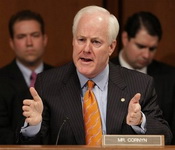The Treasury Department yesterday issued proposed regulations to comprehensively implement the Foreign Investment Risk Review Modernization Act of 2018 (FIRRMA), which seeks to more closely scrutinize certain investments and real estate transactions potentially affecting national security. (New York Times, Sept. 17)
- The proposed regulations include reforms to the Committee on Foreign Investment in the United States (CFIUS) – an interagency committee authorized to review certain transactions involving foreign investment in the United States for national security concerns. The CFIUS reforms in FIRRMA received broad support in Congress and were signed by President Trump on August 13 as part of a defense funding bill. (Wall Street Journal, Aug. 15 and Roundtable Weekly, August 17)
- The Treasury released the rules, which affect real estate and private equity transactions, in two parts:
- The second part of the regulations clearly demonstrate that the federal government is intent on reviewing more real estate transactions for security concerns, while considering country-specific exemptions for the first time.
- The text affecting real estate includes, “FIRRMA expands CFIUS’s jurisdiction to include certain types of real estate transactions involving the purchase or lease by, or a concession to, a foreign person of certain private or public real estate located in the United States.”
- The rule continues, “FIRRMA focuses on two general categories of real estate and provides certain exceptions. The first category of real estate is described by its relation to airports and maritime ports. The second category of real estate is described by its relation to U.S. military installations and other facilities or properties of the U.S. Government that are sensitive for national security reasons.”
- An analysis of the proposed CFIUS reform regulations is available via Bloomberg Law.
- The full text of the proposed regulations and frequently asked questions can be found on the Department of the Treasury’s website.
The Roundtable plans to prepare comments, which are due by October 17, 2019 before the law is scheduled to go into effect in February, 2020.
# # #




